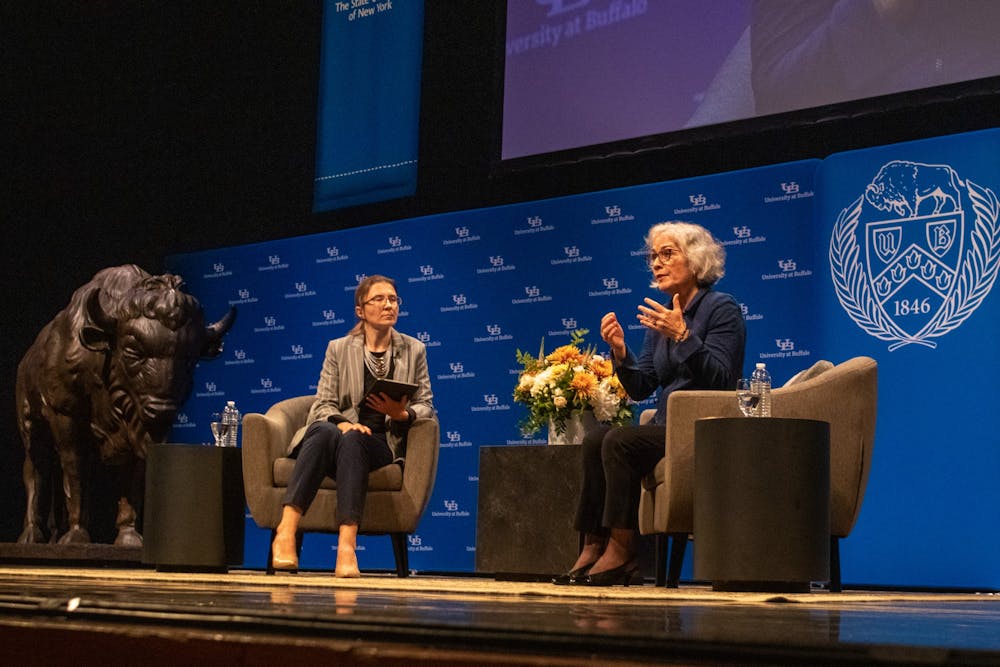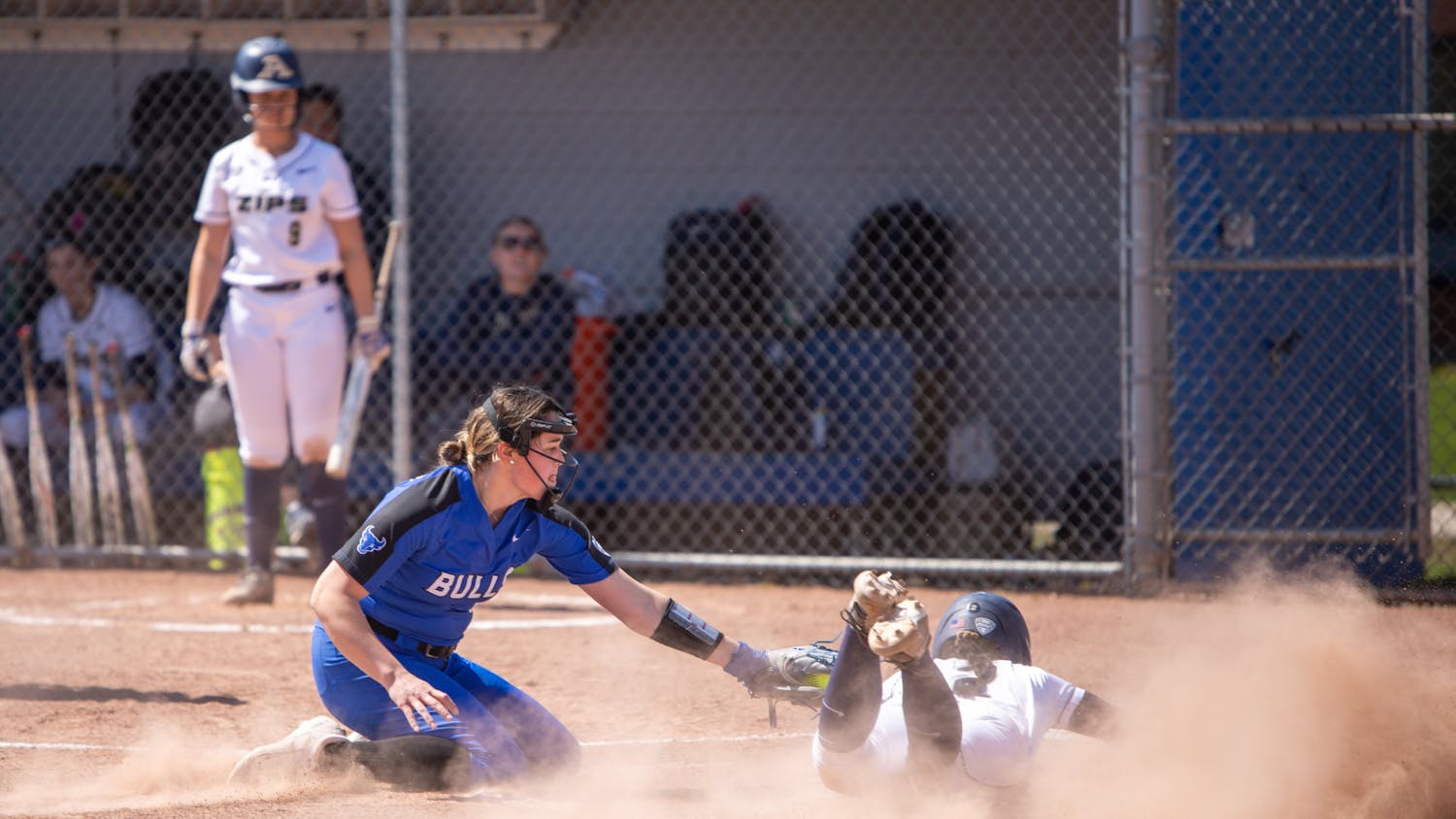In 1983, Marie Yovanovitch found out that the U.S. invaded Grenada while reading The New York Times on the subway ride to her Manhattan marketing job.
Something didn’t feel right.
Yovanovitch walked into her office that day with the intention of telling her team about what happened. Instead of listening to her concerns about the U.S’s actions, her coworkers were preoccupied with debating the layout and color scheme for a brochure.
This is when Yovanovitch realized that a marketing job in New York City was not for her.
It was also when she decided to apply to the State Department.
Yovanovitch’s passion for foreign policy issues stems from her unique family history. She is the child of European immigrants who grew up during World War Ⅱ. Her mother endured Nazi Germany, and her father grew up under Nazi control.
Eventually, Yovanovitch and her parents made their way to the U.S.
“My parents are always grateful that the U.S. took us in, providing us with your sanctuary as a safe place to live,” Yovanovitch said at her Distinguished Speaker Series appearance at UB’s Center for the Arts on Tuesday. “There was opportunity here. What they especially loved about the U.S. was the freedoms that we have here. The freedom to speak your mind, the freedom to assemble, the freedom to worship as you please, which was very important to my parents, because in Nazi Germany you could not do that.”
These experiences are what inspired Yovanovitch to take advantage of the rights she had in the U.S. She never took her freedoms for granted.
But that wasn’t enough. Yovanovitch wanted to use her own privileges and rights to give back to communities that didn’t have those same freedoms.
“My brother and I grew up with this idea of service,” Yovanovitch said. “It was up to us how we wanted to give back, whether it was through volunteering or something else. I also love to meet people from different places, eat their food and get to know their culture. This [diplomacy] was a job that combined those two things plus service to the American people, and you got paid for it. I thought that was a pretty good game.”
Yovanovitch writes about these experiences, as well as her lessons learned from working in Ukraine, in her New York Times-bestselling memoir, “Lessons from the Edge.” The book highlights her fears surrounding the war in Ukraine and how she believes the U.S. can best assist in protecting democracy.
“He [Vladmir Putin] will keep on going because that has been the problem, and we will be foolish to ignore that,” Yovanovitch said. “Countries will be invaded, and human rights will not be respected and borders will be violated. We can expect Russia to follow that route. But I think other countries, other dictators, would be watching as well. It would harm our economy and our commerce. It will harm our democracy, and it will certainly harm our security.”
Yovanovitch says that a peaceful end to the Russia and Ukraine war is possible in the future, but as of now is unmanageable. Diplomacy was thrown out the window once the Ukrainian people were abused and persecuted.
“They are continuing these acts of terror against Ukrainian people. This is not the act of a country that is looking for a diplomatic solution,” Yovanovitch said. “I think that right now Ukraine is winning. And so Ukraine wants to maximize its position as well. We don’t want Russian leads and that to me seems very reasonable.”
Yovanovitch characterized her line of work as “invisible” by design. Her responsibilities as an ambassador meant navigating the intricacies of a foreign cultures, sometimes corrupt legal systems and relationships with allies and adversaries.
Yovanovitch exercised values like integrity in her diplomacy, and she encouraged the audience to practice their values not just as Americans, but as moral human beings, by supporting Ukraine.
Russia’s invasion of Ukraine and Crimea had “coalesced Ukraine into a country,” she said. In 2017, she witnessed Ukranians placing their hands over their hearts and singing their national anthem, a stark contrast to her visit in the early 2000s, when there was an absence of patriotism and no one had sang the anthem.
Yovanovitch’s words connected Holden Endres, a freshman computer science major, closer to Ukraine.
“She did a great job with informed patriotism,” Endres said. “She told us that Ukraine was going to win the war not just because she wanted to, she wanted us to believe it and to console us. That was truly inspiring, and the most tied to Ukraine that I have felt throughout the entirety of the warfare.”
Andrew Pawlaski, a freshman biology major, attended to “respark” his engagement with the war in Ukraine and found Yovanovitch’s career interesting but did not understand Yovanovitch’s stance that diplomacy between Russia and Ukraine was not a possible solution at the moment.
“That was a little disheartening to hear,” Pawlawski said, “I was honestly a little surprised to hear the ambassador saying that she thinks that a peaceful option right now isn’t the best situation because peace is important.”
Kayla Estrada is a senior news/features editor and can be reached at kayla.estrada@ubspectrum.com
Tenzin Wodhean is the fact checker and can be reached at tenzin.wodhean@ubspectrum.com

Kayla Estrada is the opinion editor at The Spectrum. She is an English major who enjoys rainy weather, “Bob’s Burgers” and asking people who they voted for. When she’s not writing, she can be found hunting for odd-looking knick-knacks at the nearest thrift store.





